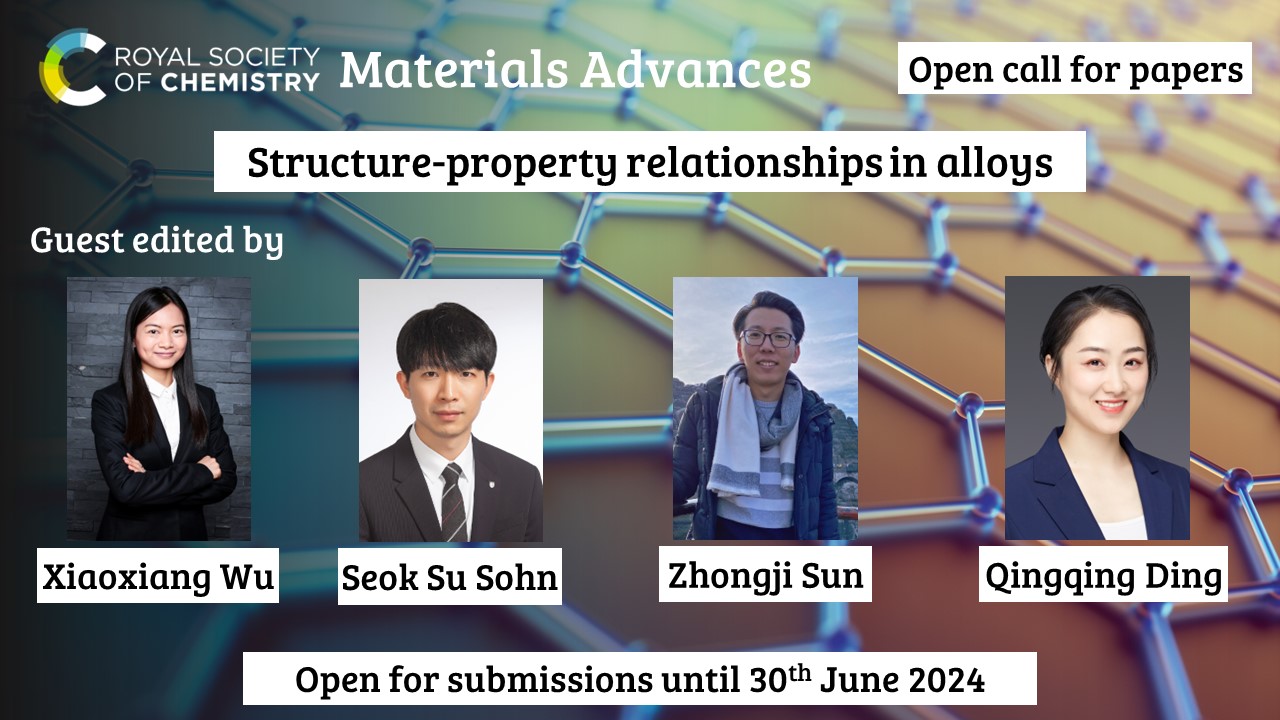This year we are pleased to celebrate 10 years since Journal of Materials Chemistry was split into three respective journals: Journal of Materials Chemistry A, B and C, each focusing on a different aspect of materials chemistry. We are grateful to our fantastic community of authors, reviewers, Board members and readers and wanted to showcase just some of them in a series of ‘Community Spotlight’ blog articles.
In this final blog of the series, we spotlight some more of our first time authors in Journal of Materials Chemistry A, Journal of Materials Chemistry B and Journal of Materials Chemistry C who have published with us as corresponding authors during the anniversary year, and have had their work appear in our #MyFirstJMCA, #MyFirstJMCB or #MyFirstJMCC collections. We welcome our new community of authors and are pleased that they have chosen to publish with our journals. Find out about why they chose to publish with the Journal of Materials Chemistry family and read their first JMC publications below.
Dr Pallab Bhattacharya
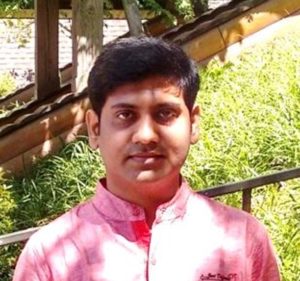
Pallab Bhattacharya is a senior scientist in the Functional Material Group under Advanced Materials and Processes (AMP) Division in CSIR-National Metallurgical Laboratory and is an Assistant Professor at the Academy of Scientific and Innovative Research (AcSIR) at CSIR, India. He received his Ph.D. from the Indian Institute of Technology (IIT) Kharagpur, India and worked as a postdoctoral researcher in the Department of Chemical Engineering at Sungkyunkwan University (SKKU) and Chonbuk National University (CBNU) of South Korea. His research interests include design and development of various energy materials includes nanomaterials, 2D materials, and composites with focus on energy storage by supercapacitors and batteries. He is a recipient of several prestigious fellowships like DST INSPIRE FACULTY award by Department of Science and Technology (DST), Govt. of India and National Eligibility test (NET) fellowship from Council of Scientific & Industrial Research (CSIR), India. He is a member of the materials research society of India (MRSI). |
What made you choose Journal of Materials Chemistry C as a place to publish your latest materials chemistry research?
Developing materials by tuning the chemistry to influence the property and application always remains fascinating to me. Journal of Materials Chemistry C is one such journal that publishes innovative and high-quality research articles in this field. Our work was on the development of an energy storage material by an innovative approach and being published in the Journal of Materials Chemistry C defines the quality of the work. Journal of Materials Chemistry C also acts very fast on the publication process which is highly helpful. Thanks to all the referees for their constructive and valuable feedback and for helping us to shape the quality of our published article.
Could you tell us a bit about your #MyFirstJMCC publication (DOI: 10.1039/D3TC02074F)?
Development of affordable green energy storage solutions is the need of the hour, and therefore, our constant effort is in function to make highly performing and affordable supercapacitors. In my first Journal of Materials Chemistry C, we introduced a controlled microwave-plasma induced single-step process to produce a N and P co-doped sheet-like multilayer graphitic carbon coupled with an ultrasmall nickel phosphate nanosphere-based composite electrode with optimized compositions to produce a remarkable capacitance with ultralong cycle life. This affordable supercapacitor works well in two different practical applications where a pulse oximeter measures readings multiple times and an LED board containing 28 red LEDs glows for several minutes on a single charge. This type of approach has been reported for the first time and thanks to the Journal of Materials Chemistry C for publishing this work. This approach may be further extended for developing different composites from different bio-wastes and transition metal precursors for energy applications.
Read Pallab’s Journal of Materials Chemistry C article:
Microwave-plasma induced one-step synthesis of Ni(PO3)2 nanosphere-loaded bio-waste derived N, P co-doped carbon for an asymmetric supercapacitor with prolonged life
Nisha Gupta and Pallab Bhattacharya
J. Mater. Chem. C, 2023, 11, 13503-13517
Dr María J. Marín
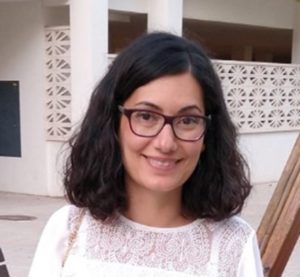 Dr Marín graduated with a PhD in Chemistry from the University of East Anglia (UEA, UK) in 2013 under the supervision of Prof Russell. From 2013 to 2017, she was a Postdoctoral Researcher at UEA and John Innes Centre; and worked as a Development Scientist at Iceni-Glycoscience. She joined UEA as a Lecturer in Analytical Chemistry in October 2017 and her research focusses on the use of nanotechnology to address biological and biomedical problems. She has extensive experience in applying nanomaterials to biosensing, diagnostics, and drug delivery, and the effective use of modern spectroscopic techniques, both for materials characterisation and device tracking and readout. She was awarded the Roscoe Gold Medal for Chemistry and the Westminster Medal as the overall winner during the 2014 SET for Britain. She is passionate about Analytical Chemistry and its impact in the employability of the undergraduate students, and this is reflected in her contribution to the Analytical modules within the School of Chemistry at UEA. She is a member of the Advisory Board of the RSC journal Analyst, sits on the Advisory Committee of “Advanced Study Course on Optical Chemical Sensors (ASCOS)” European network, is a member of the RSC Analytical Division East Anglia Regional Committee, and is the Chemistry representative in the Executive Group of the Norwich Cancer Research Network. Dr Marín graduated with a PhD in Chemistry from the University of East Anglia (UEA, UK) in 2013 under the supervision of Prof Russell. From 2013 to 2017, she was a Postdoctoral Researcher at UEA and John Innes Centre; and worked as a Development Scientist at Iceni-Glycoscience. She joined UEA as a Lecturer in Analytical Chemistry in October 2017 and her research focusses on the use of nanotechnology to address biological and biomedical problems. She has extensive experience in applying nanomaterials to biosensing, diagnostics, and drug delivery, and the effective use of modern spectroscopic techniques, both for materials characterisation and device tracking and readout. She was awarded the Roscoe Gold Medal for Chemistry and the Westminster Medal as the overall winner during the 2014 SET for Britain. She is passionate about Analytical Chemistry and its impact in the employability of the undergraduate students, and this is reflected in her contribution to the Analytical modules within the School of Chemistry at UEA. She is a member of the Advisory Board of the RSC journal Analyst, sits on the Advisory Committee of “Advanced Study Course on Optical Chemical Sensors (ASCOS)” European network, is a member of the RSC Analytical Division East Anglia Regional Committee, and is the Chemistry representative in the Executive Group of the Norwich Cancer Research Network. |
What made you choose Journal of Materials Chemistry B as a place to publish your latest materials chemistry research?
When our paper that describes novel gold-based nanomaterials for applications in biology and medicine was ready for submission, Journal of Materials Chemistry B was our first choice. This is a prestigious and highly cited journal in the field of materials sciences, and we knew our paper would be fairly reviewed and, if accepted, highly cited by the scientific community. Publishing with this RSC journal has been an extremely pleasant experience. The communication was fluent, and the reviewing process was not lengthy. I was very impressed with the quality of the proofs sent by the editorial team of the journal and the overall publishing experience with Journal of Materials Chemistry B.
Could you tell us a bit about your #MyFirstJMCB publication (DOI: 10.1039/D3TB00103B)?
A major research direction in my group is the development of novel fluorescence-based molecular and nano-probes for the quantitative detection of intracellular analytes involved in disease states. Our #MyFirstJMCB publication (DOI: 10.1039/D3TB00103B) reports the first example of a two-photon gold nanoprobe (DANPY-NO@AuNPs) for the versatile intracellular detection and quantification of NO, with potential for the spatiotemporal monitoring of in vitro and in vivo NO levels. The nanoprobe, which can be synthesised in a reproducible manner and exhibits great stability when stored at room temperature, is able to selectively detect NO in solution, with a dynamic range up to 150 µM, and at pH values of biological relevance. DANPY-NO@AuNPs, which showed negligible toxicity, were able to selectively detect endogenous NO in RAW264.7γ NO– macrophages, THP-1 human leukemic cells; and endogenous and exogenous NO in endothelial cells; and showed potential to quantify intracellular NO concentrations in MDA-MB-231 breast cancer cells.
Read María’s Journal of Materials Chemistry B article:
Gold nanoparticle-based two-photon fluorescent nanoprobe for monitoring intracellular nitric oxide levels
Carla Arnau del Valle, Paul Thomas, Francisco Galindo, María Paz Muñoz and María J. Marín
J. Mater. Chem. B, 2023, 11, 3387-3396
Dr Biplab Maji
 Dr. Biplab Maji completed his undergraduate studies in Chemistry at Ramakrishna Mission Vidyamandira, affiliated with the University of Calcutta, India, in 2007. He went on to earn his M.Sc. degree in Chemistry from IIT Kanpur, India, in 2009. In 2012, he successfully defended his Ph.D. thesis under the mentorship of Prof. Herbert Mayr at Ludwig-Maximilians-Universität München in Germany. Subsequently, in 2013, he embarked on a post-doctoral fellowship in the lab of Professor Hisashi Yamamoto in Japan. In 2015, he conducted research as an Alexander von Humboldt fellow, collaborating with Prof. Frank Glorious in Münster, Germany. In 2016, Dr. Maji joined the Department of Chemical Sciences at the Indian Institute of Science Education and Research Kolkata (IISER Kolkata), India, as an Assistant Professor and he was promoted to the position of Associate Professor in 2021. His group employs diverse catalytic strategies to tackle important chemical problems and develops new catalysts and reaction conditions with potential applications in biomass valorization, drug discovery, late-stage functionalizations, and biologically active compounds. His research team is actively involved in in-depth mechanistic studies, aimed at gaining a comprehensive understanding of how chemical reactions progress. Dr. Biplab Maji completed his undergraduate studies in Chemistry at Ramakrishna Mission Vidyamandira, affiliated with the University of Calcutta, India, in 2007. He went on to earn his M.Sc. degree in Chemistry from IIT Kanpur, India, in 2009. In 2012, he successfully defended his Ph.D. thesis under the mentorship of Prof. Herbert Mayr at Ludwig-Maximilians-Universität München in Germany. Subsequently, in 2013, he embarked on a post-doctoral fellowship in the lab of Professor Hisashi Yamamoto in Japan. In 2015, he conducted research as an Alexander von Humboldt fellow, collaborating with Prof. Frank Glorious in Münster, Germany. In 2016, Dr. Maji joined the Department of Chemical Sciences at the Indian Institute of Science Education and Research Kolkata (IISER Kolkata), India, as an Assistant Professor and he was promoted to the position of Associate Professor in 2021. His group employs diverse catalytic strategies to tackle important chemical problems and develops new catalysts and reaction conditions with potential applications in biomass valorization, drug discovery, late-stage functionalizations, and biologically active compounds. His research team is actively involved in in-depth mechanistic studies, aimed at gaining a comprehensive understanding of how chemical reactions progress. |
What made you choose Journal of Materials Chemistry A as a place to publish your latest materials chemistry research?
JMCA is one of the prestigious journals for high-quality research on materials and their application in energy and catalysis. The peer review process was fair, and its reviewers gave constructive and valuable feedback. Our investigation included both the novel material and its catalytic application in producing demanding organic compounds. This matched well with the scope of the journal for publication. Here, I would like to take the opportunity to thank the editors and reviewers for recognizing the suitability of our research for this journal. Overall, our experience was awesome.
Could you tell us a bit about your #MyFirstJMCA publication (DOI: 10.1039/D3TA03280A)?
We have synthesized a novel material named PKPOP. Its novelty comprised a fully conjugated porous organic polymeric framework containing olefin linkage and phosphorus as core ingredients. The PKPOP was leveraged on three binding sites (P, olefin, CN) to stabilize the palladium catalyst in different reaction stages. This helped it to be exploited in synthetically challenging and stereo-selective multicomponent dicarbofunctionalization reactions on unactivated alkynes to give trans-selective tetra-substituted alkenes. Its robustness and sustainability were shown in terms of producing a broad substrate scope with wide functionalities, maintaining high yields of the products without damaging the polymeric framework after multiple recyclabilities, and its turnover number and turnover frequency.
Read Biplab’s Journal of Materials Chemistry A article:
A phosphorus-based olefin linked fully conjugated polymeric ligand for palladium-catalyzed trans-selective dicarbofunctionalization of internal alkynes
Pramod Kumar and Biplab Maji
J. Mater. Chem. A, 2023, 11, 20752-20760
Dr Cristina Fornaguera
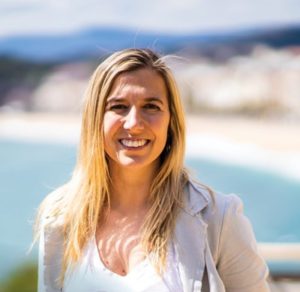
Dr Cristina Fornaguera defended her PhD in 2015, focusing on the development of polymeric NPs to cross the BBB. After, she worked as an industrial postdoc in the startup Sagetis Biotech, where she mastered her knowledge on synthesizing polymers for the controlled delivery of drugs and nucleic acids to efficiently cross the BBB, focusing her studies on the encapsulation of therapeutic RNAs. There, she had her first contact with industrial environment, acquiring expertise on the technology transfer. She then started her own research lines, focusing on the encapsulation of RNAs in pBAE polymers. Her wide experience of pBAE NPs has been recognized, not only by the numerous publications reporting pBAEs use for different biomedical applications, but also for the funding of national and international projects; as well as private projects with international biotech, pharma, cosmetic and veterinary companies. Currently, she leads a research group focusing on the design of novel nucleic acid based nanotherapies to tackle cancer, metabolic and brain diseases. |
Could you tell us a bit about your #MyFirstJMCB publication (DOI: 10.1039/D3TB00607G)?
My first Journal of Materials Chemistry B publication details the design of a novel family of poly(beta amino-ester) polymers functionalized with mannoses to achieve selective targeting. Given antigen presenting cells, namely macrophages, present a number of mannose receptors on their surface, our strategy looked for and demonstrated the selective targeting of nanoparticles to antigen presenting cells as well as their functionality, studied by the expression of the encoded mRNA. This is a proof-of-concept study demonstrating the potential of our polymers for immune modulatory applications.
What did you like most about the publication process with Journal of Materials Chemistry B?
Publishing with JMCB has been very easy and also fast, which is an important point to take into account. We received recommended revisions by reviewers that clearly demonstrated the integrity of experts in the field. Although they gave us more work, revisions helped a lot to improve our manuscript, thus contributing to the publication of a high standard of work by the journal. The process is rigorous and professional, not only from the scientific point of view, but also for the editing of the manuscript for publication.
Read Cristina’s Journal of Materials Chemistry B article:
Novel α-mannose-functionalized poly(β-amino ester) nanoparticles as mRNA vaccines with increased antigen presenting cell selectivity in the spleen
Nil González-Ríos, Margalida Artigues, Marta Guerra-Rebollo, Antoni Planas, Salvador Borrós, Magda Faijes and Cristina Fornaguera
J. Mater. Chem. B, 2023, 11, 6412-6427
Dr Daniel G. Araiza
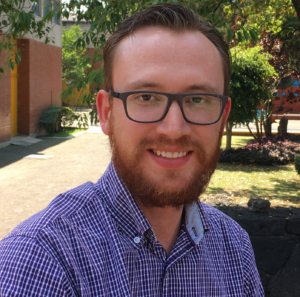
Dr. Daniel G. Araiza works as a Postdoctoral Researcher at the Institute for Applied Science and Technology of the National Autonomous University of Mexico (ICAT-UNAM) and belongs to the National System of Researchers (SNI). In 2021, he received his PhD degree in Materials Science from the Institute of Physics of UNAM. His research has focused on the synthesis of new catalytic materials to produce clean energy sources (hydrogen) through renewable resources (alcohols), as well as in the reduction of greenhouse gases (methane and carbon dioxide). His scientific work consists of 23 published articles (9 as first and 6 as corresponding author), with more than 350 cites. He is an active member of various scientific associations such as the North American Catalan Society (NACS) and the Materials Research Society (MRS). He received the LAAAMP scholarship to perform experiments at the Stanford Synchrotron Radiation Lightsource (SSRL), provided by the International Union of Pure and Applied Physics (IUPAP) and the International Union of Crystallography (IUCr). |
Could you tell us a bit about your #MyFirstJMCA publication (DOI: 10.1039/D2TA09059G)?
The publication consists of a detailed investigation of different structural, electronic, and optical properties of doped sodium ferrites (NaFeO2), an affordable material with several applications; in this case, focusing on its CO2 capture properties. The novelty lies in the fact that, for the first time, these doped-ferrites were studied with a combined experimental and theoretical approach.
What did you like most about the publication process with the journal?
The reviewing process helped considerably to further improve the quality of the work. Besides, the editorial’s follow-up throughout the process helped the work to be published as soon as possible.
Read Daniel’s Journal of Materials Chemistry A article:
Unveiling the different physicochemical properties of M-doped β-NaFeO2 (where M = Ni or Cu) materials evaluated as CO2 sorbents: a combined experimental and theoretical analysis
Nayeli Gómez-Garduño, Daniel G. Araiza, Christian A. Celaya, Jesús Muñiz and Heriberto Pfeiffer
J. Mater. Chem. A, 2023, 11, 10938-10954
Thank you to our first time authors for choosing to publish with us!
We hope you enjoyed finding out about some of new community of authors in this final 10th Anniversary Community Spotlight blog of the series.
If you missed any of our previous ‘Community Spotlight’ blog posts, check them all out here.
Comments Off on Journal of Materials Chemistry A, B and C 10th Anniversary Community Spotlight: First time authors






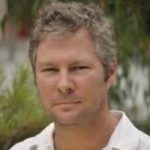









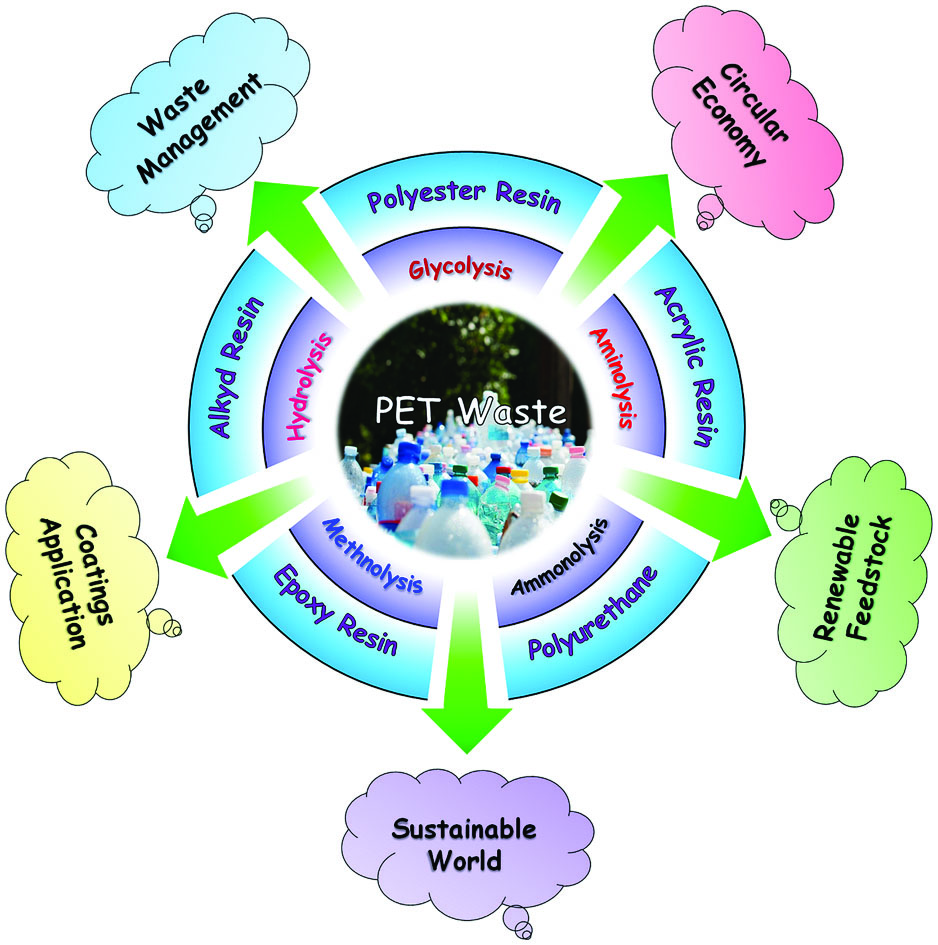
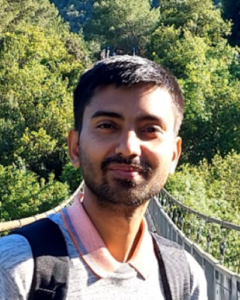

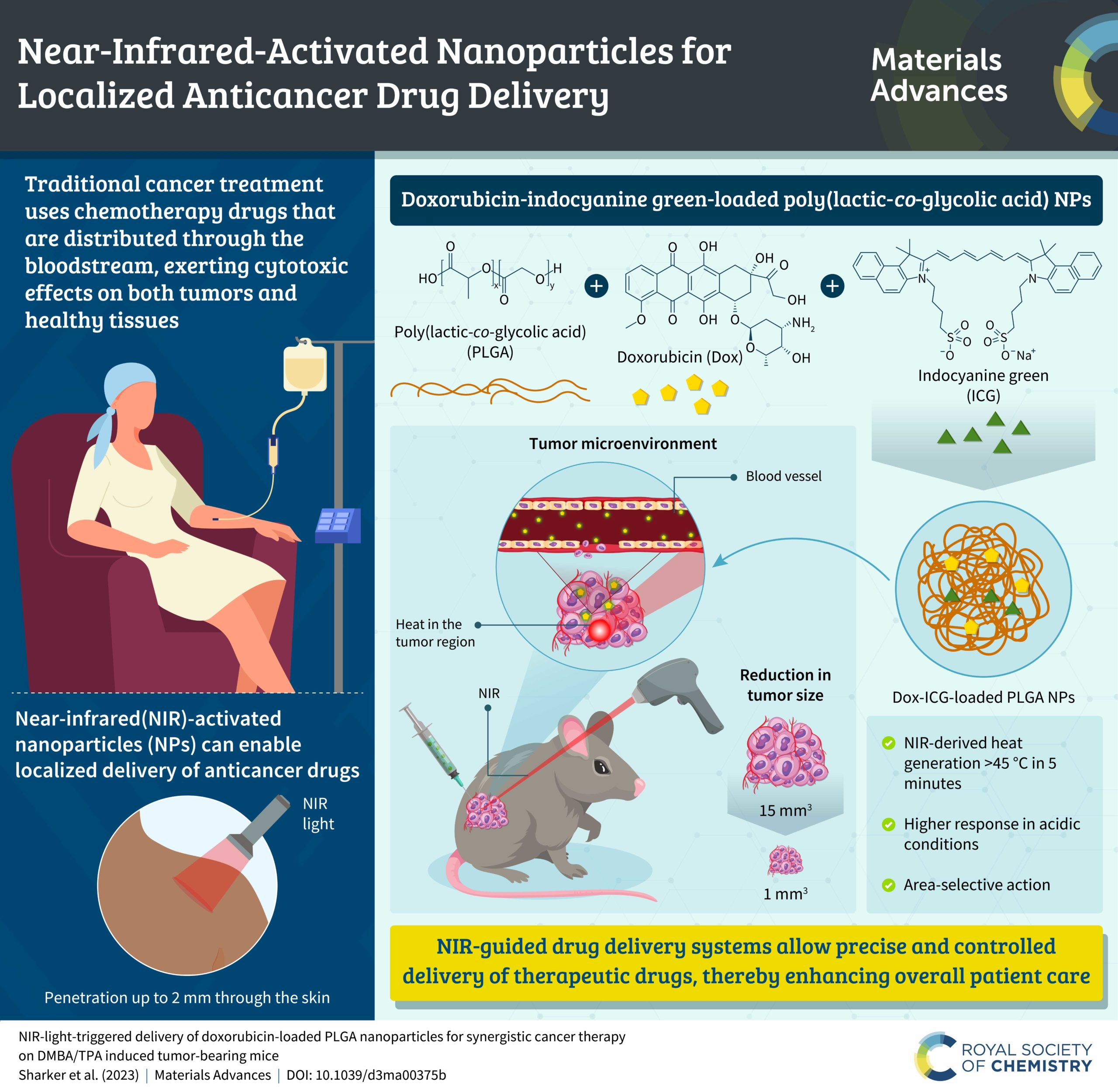
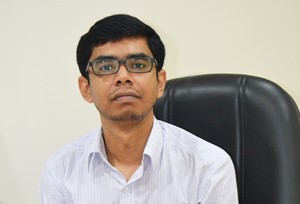
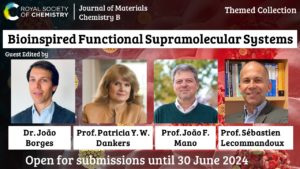
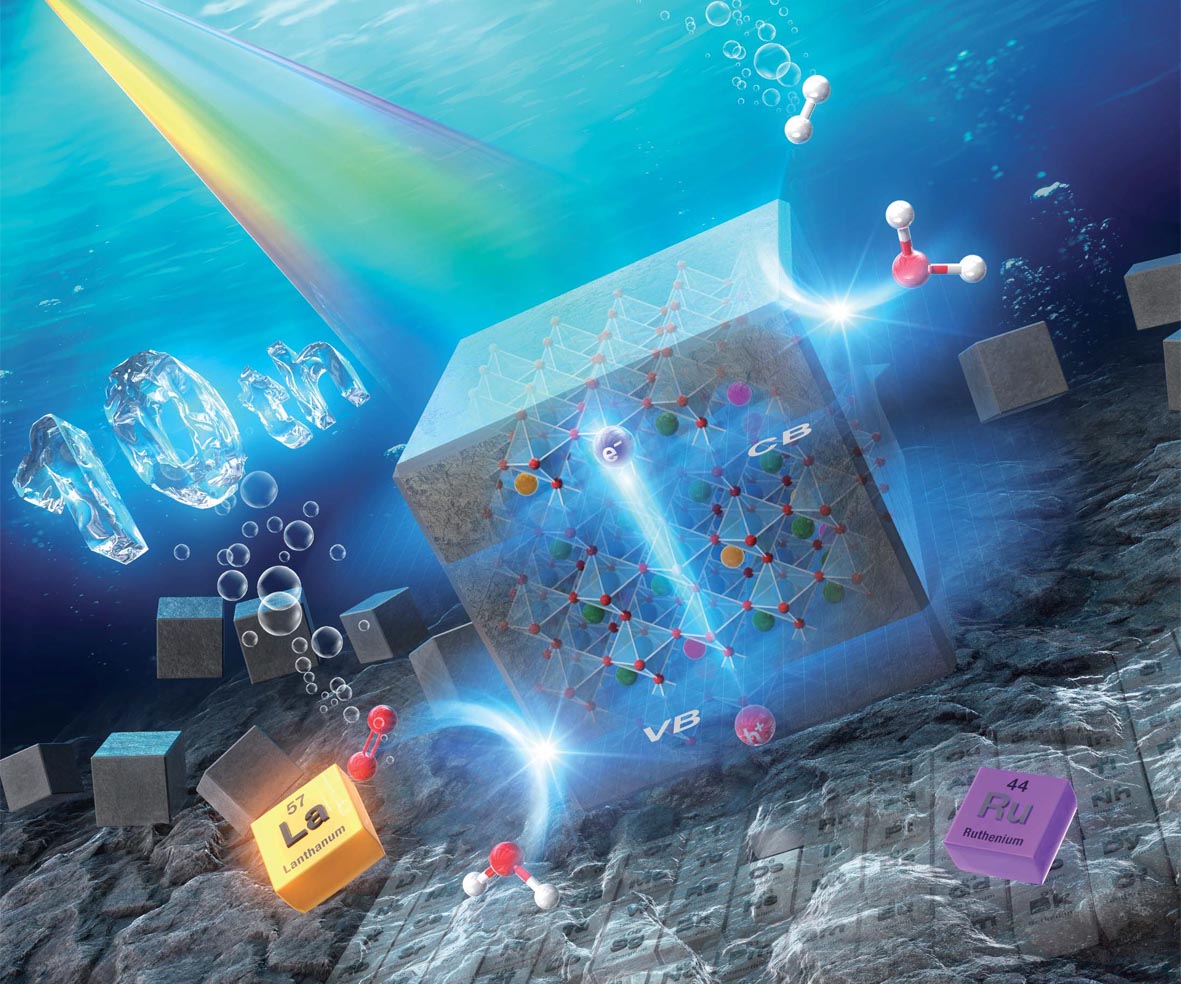
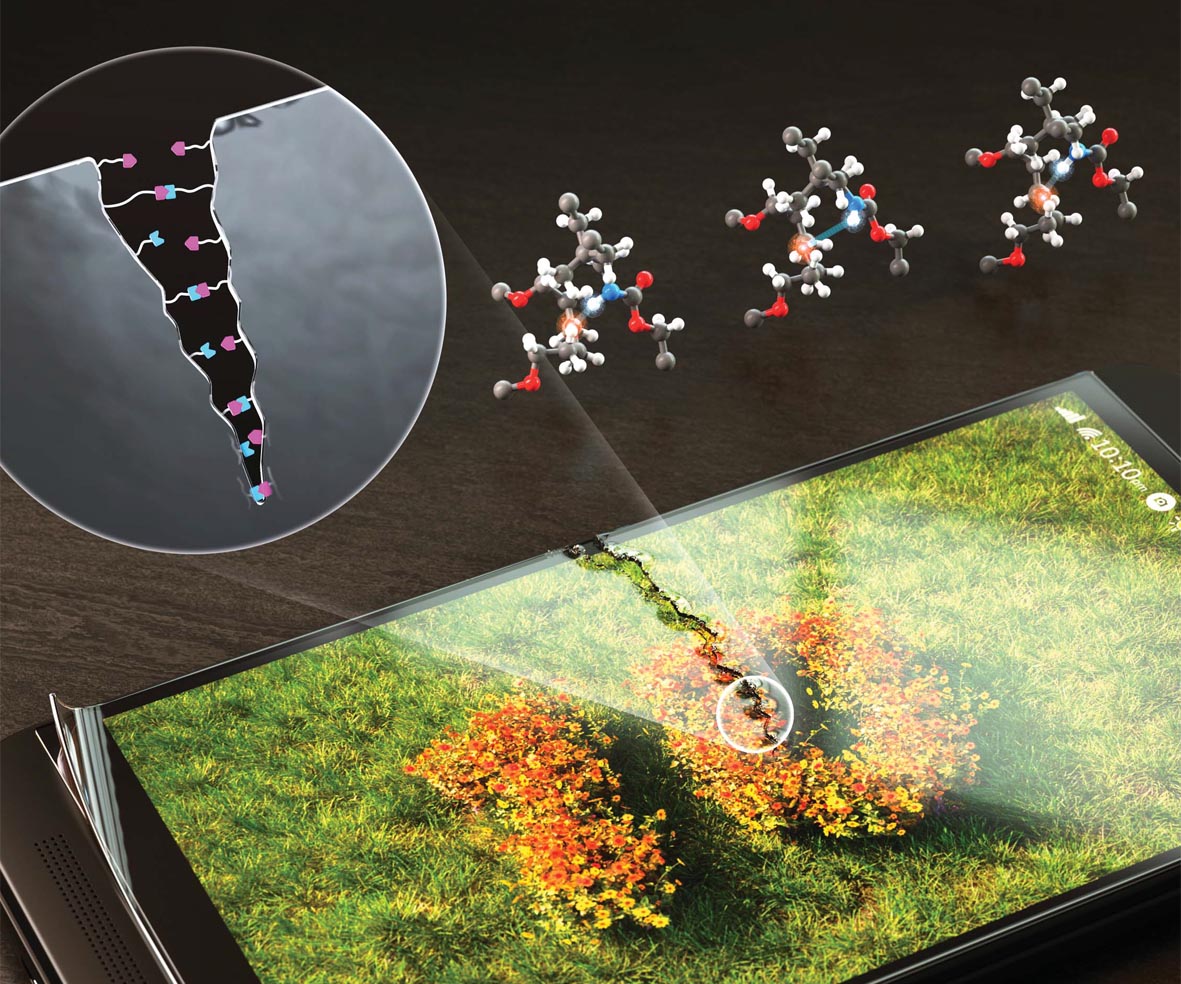
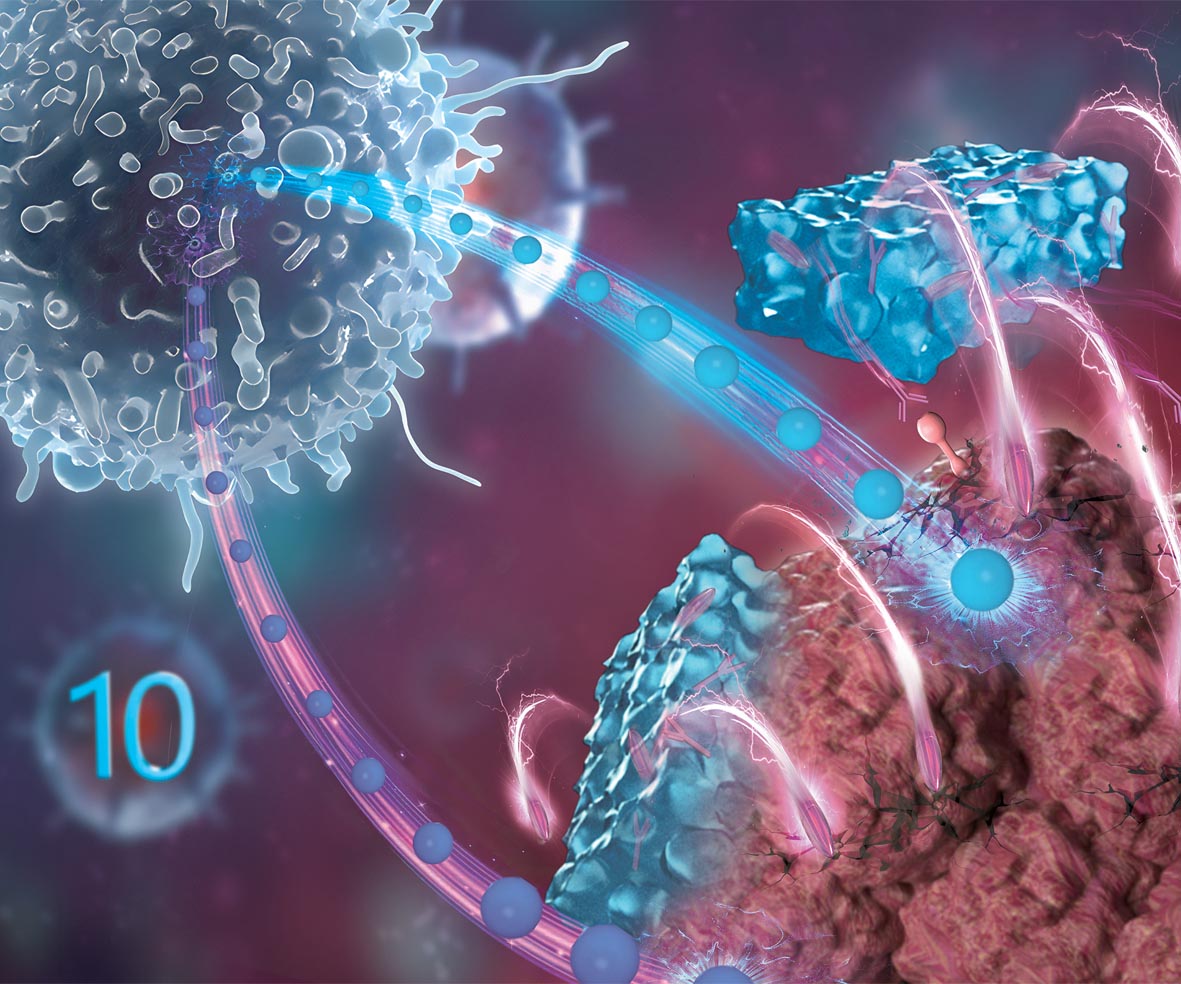
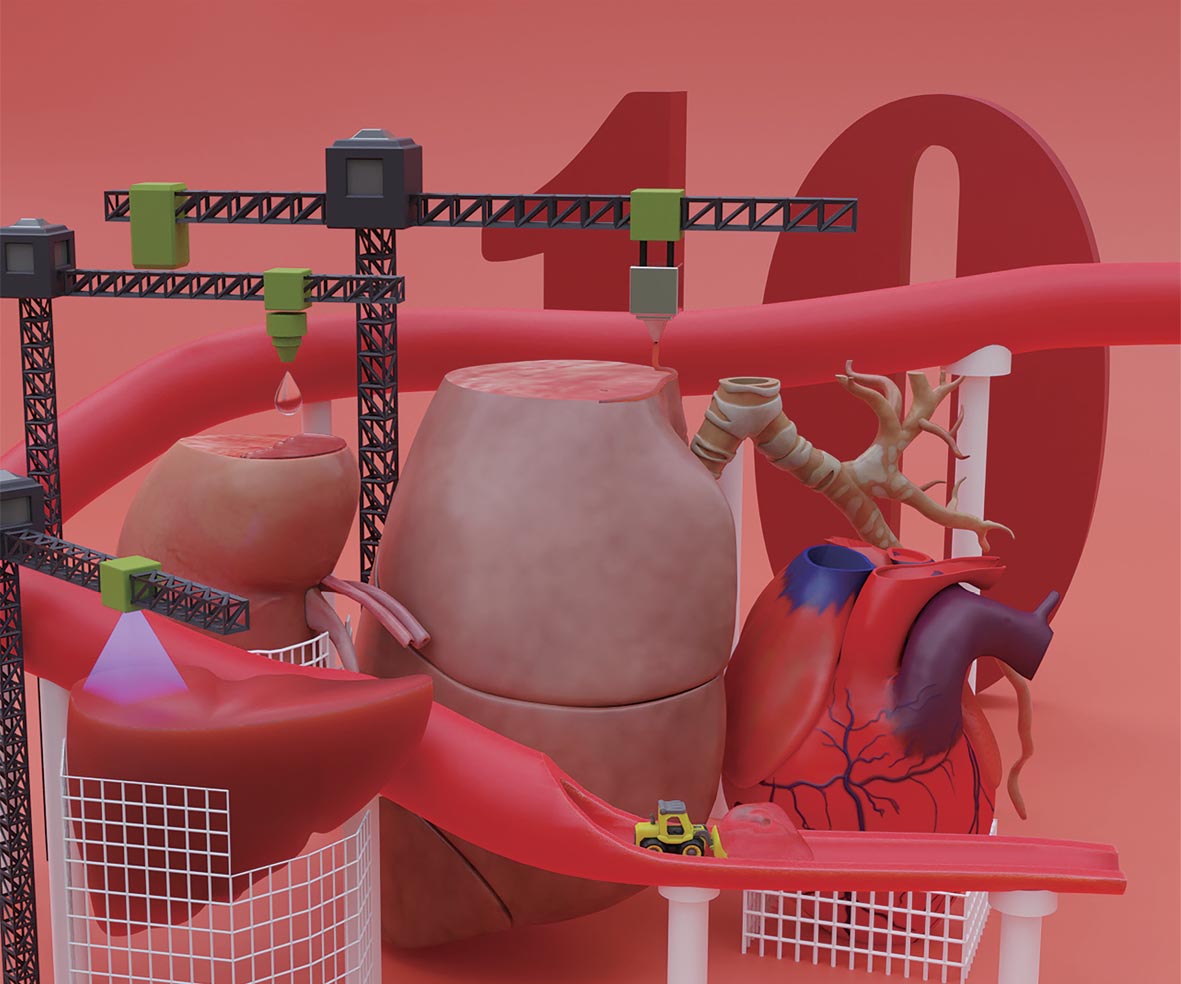
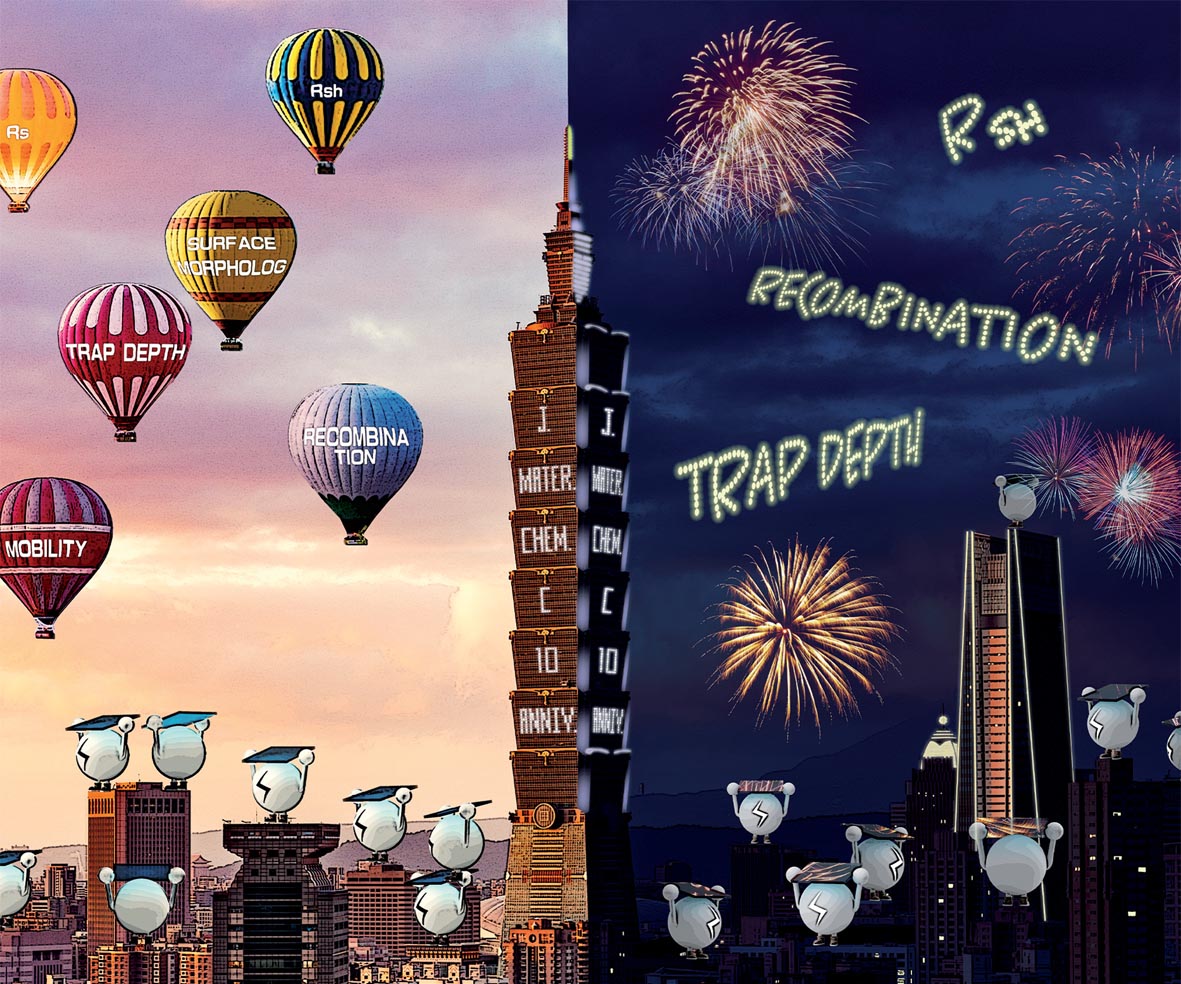
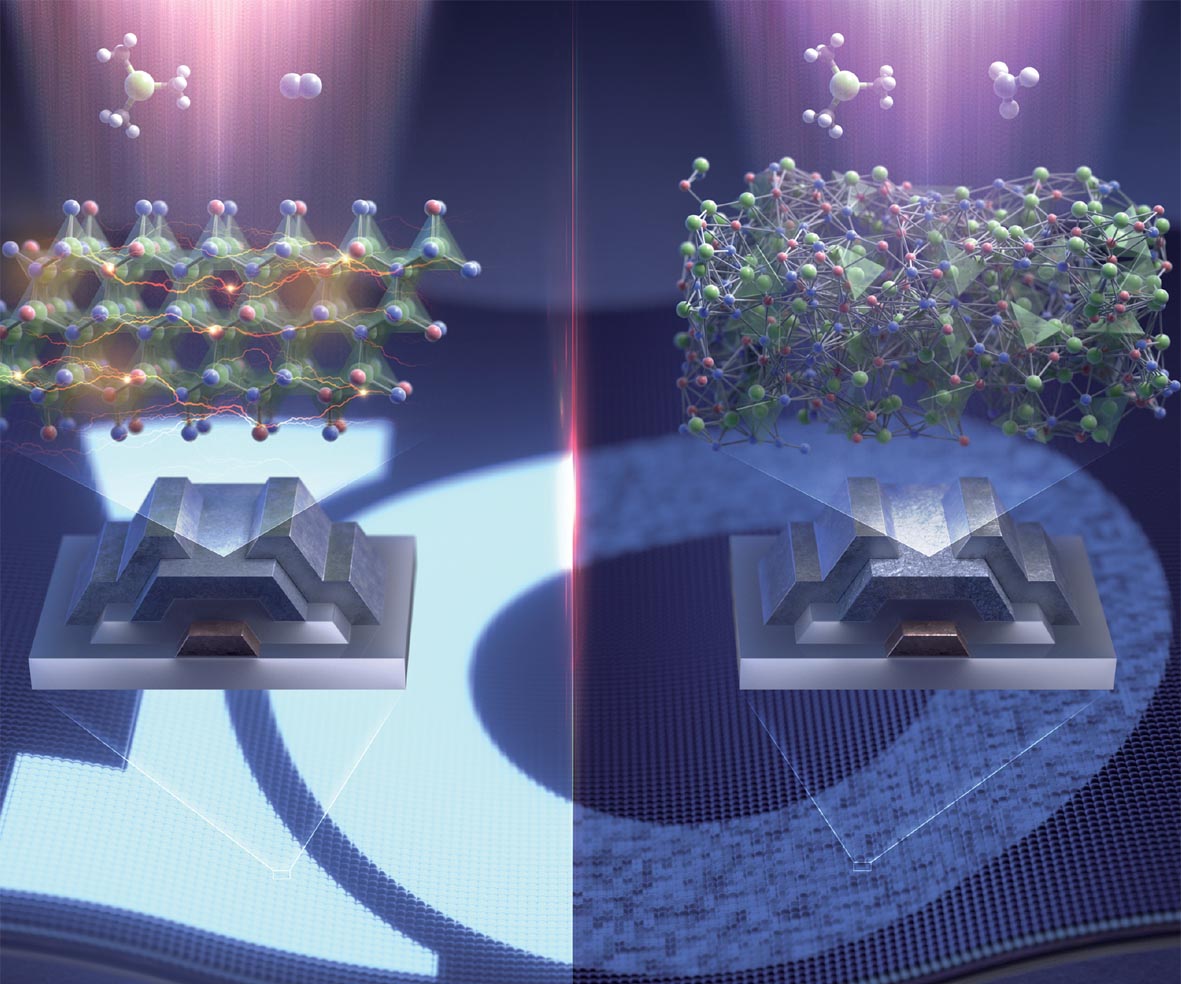
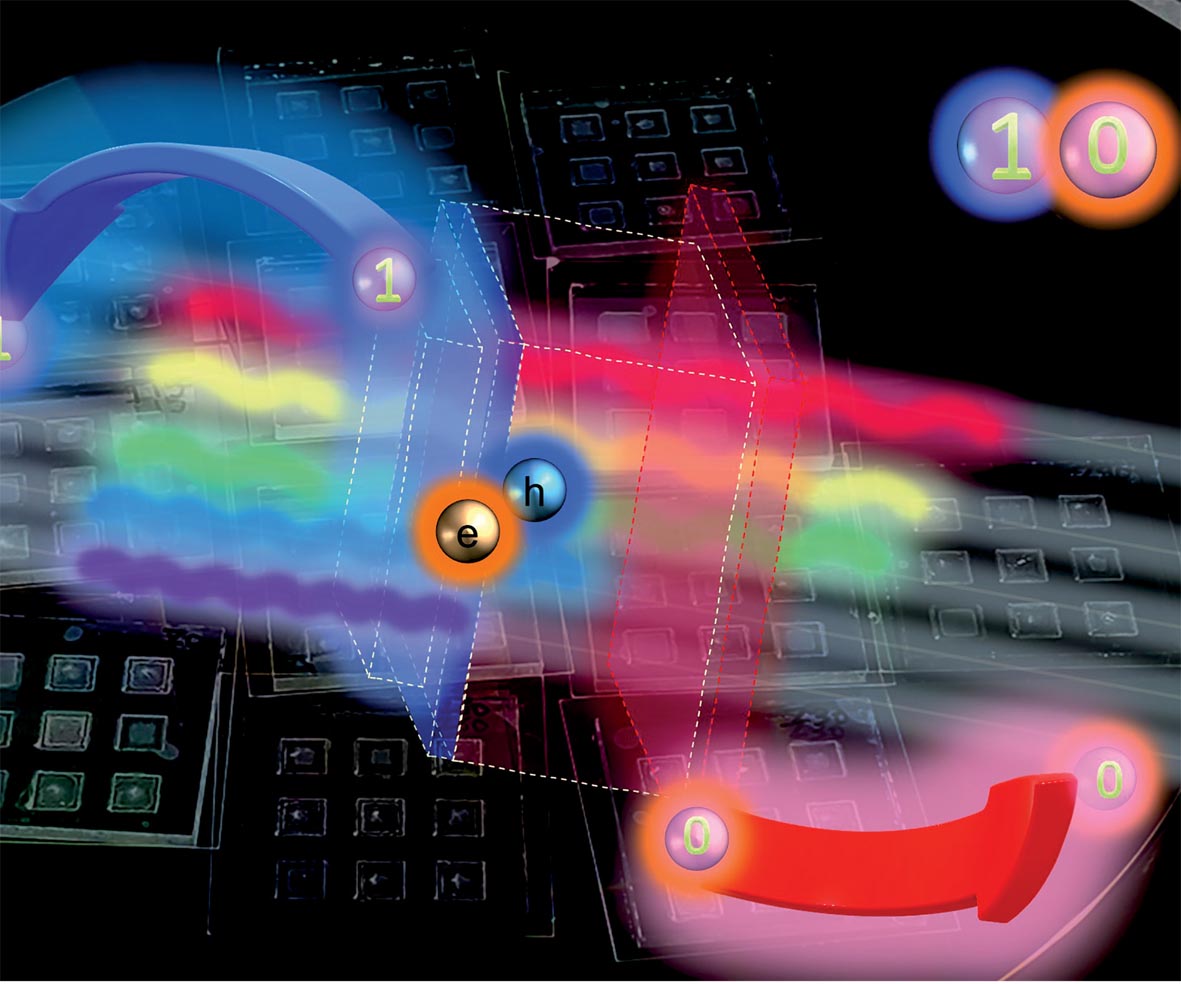
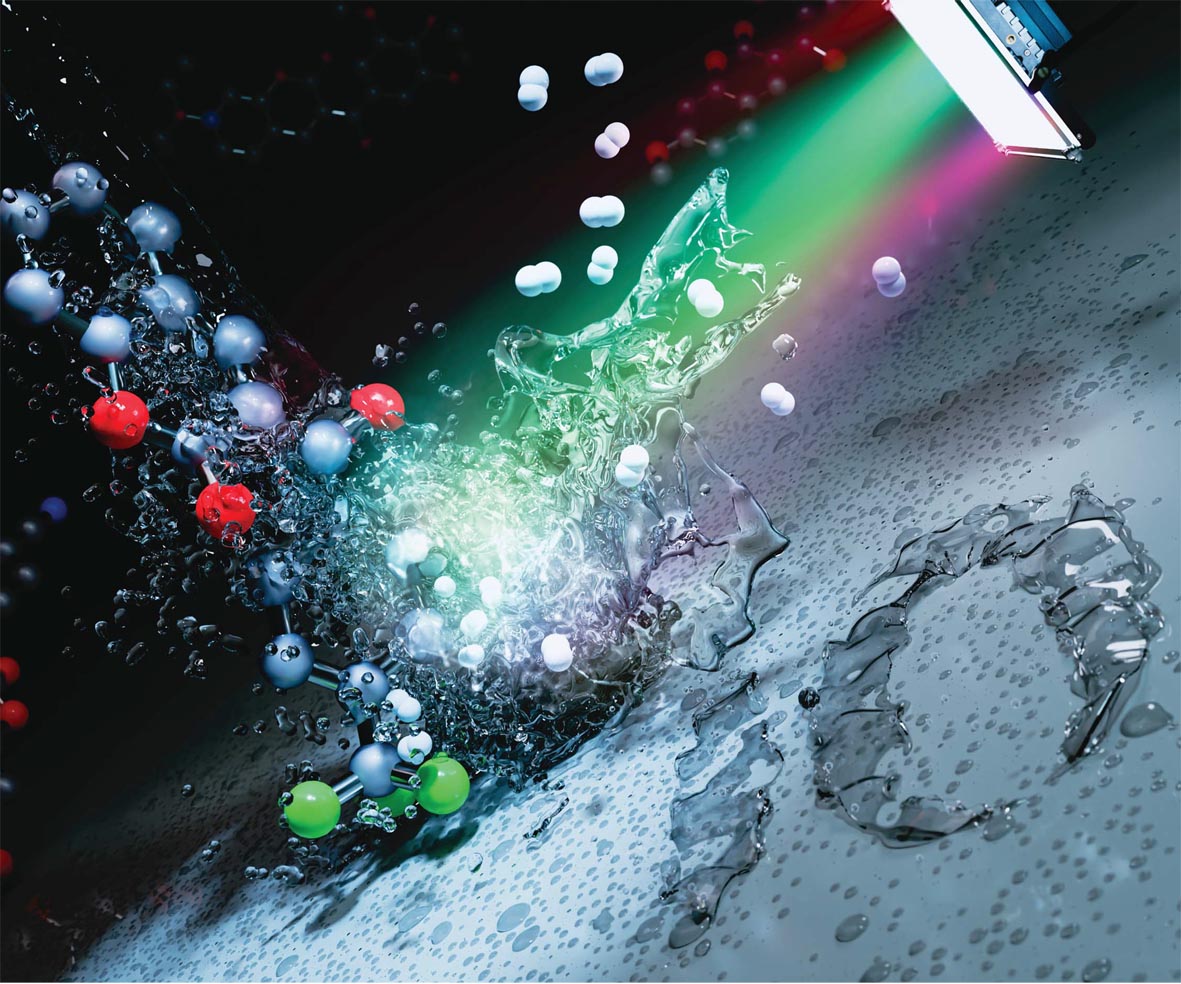
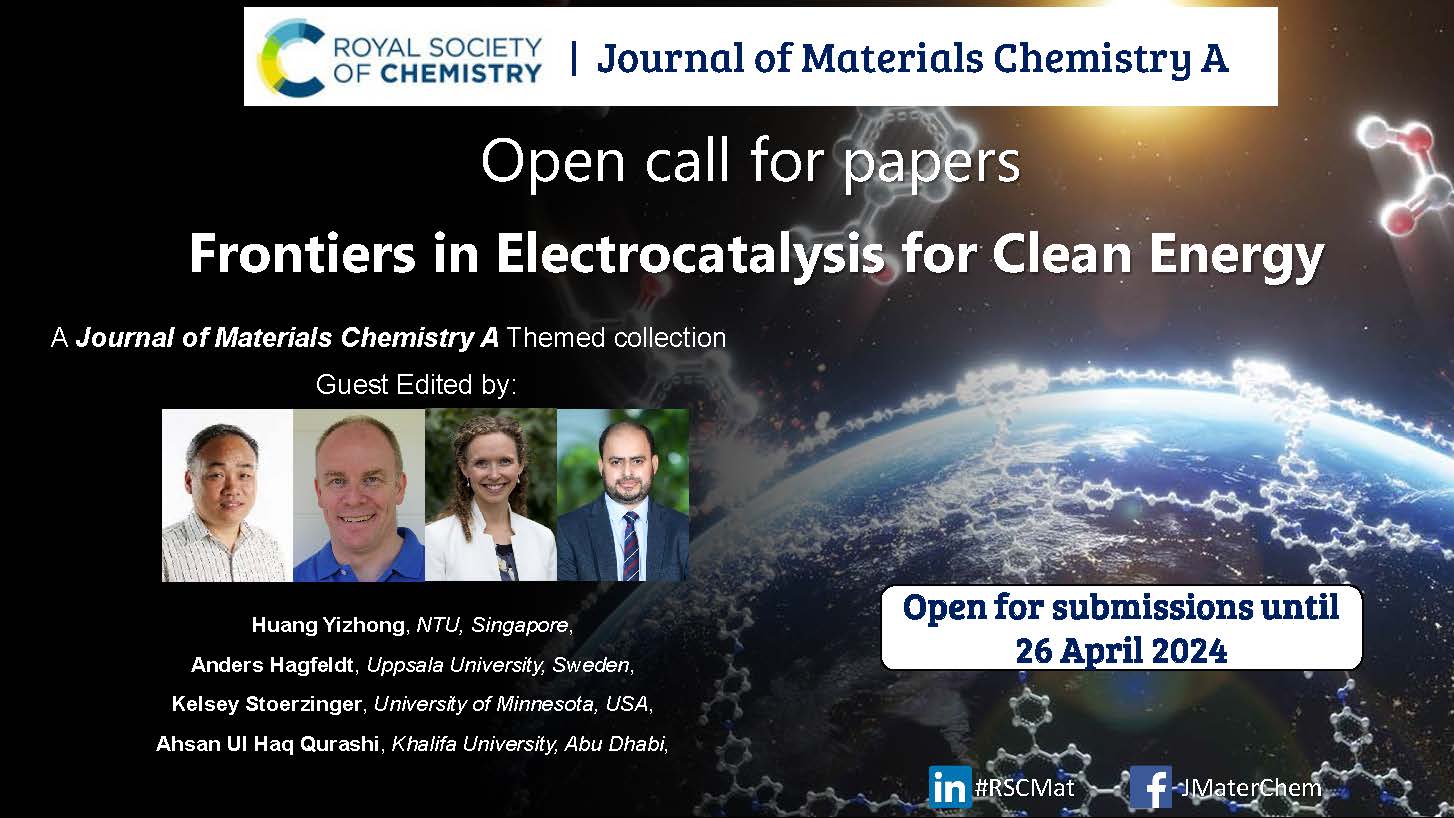










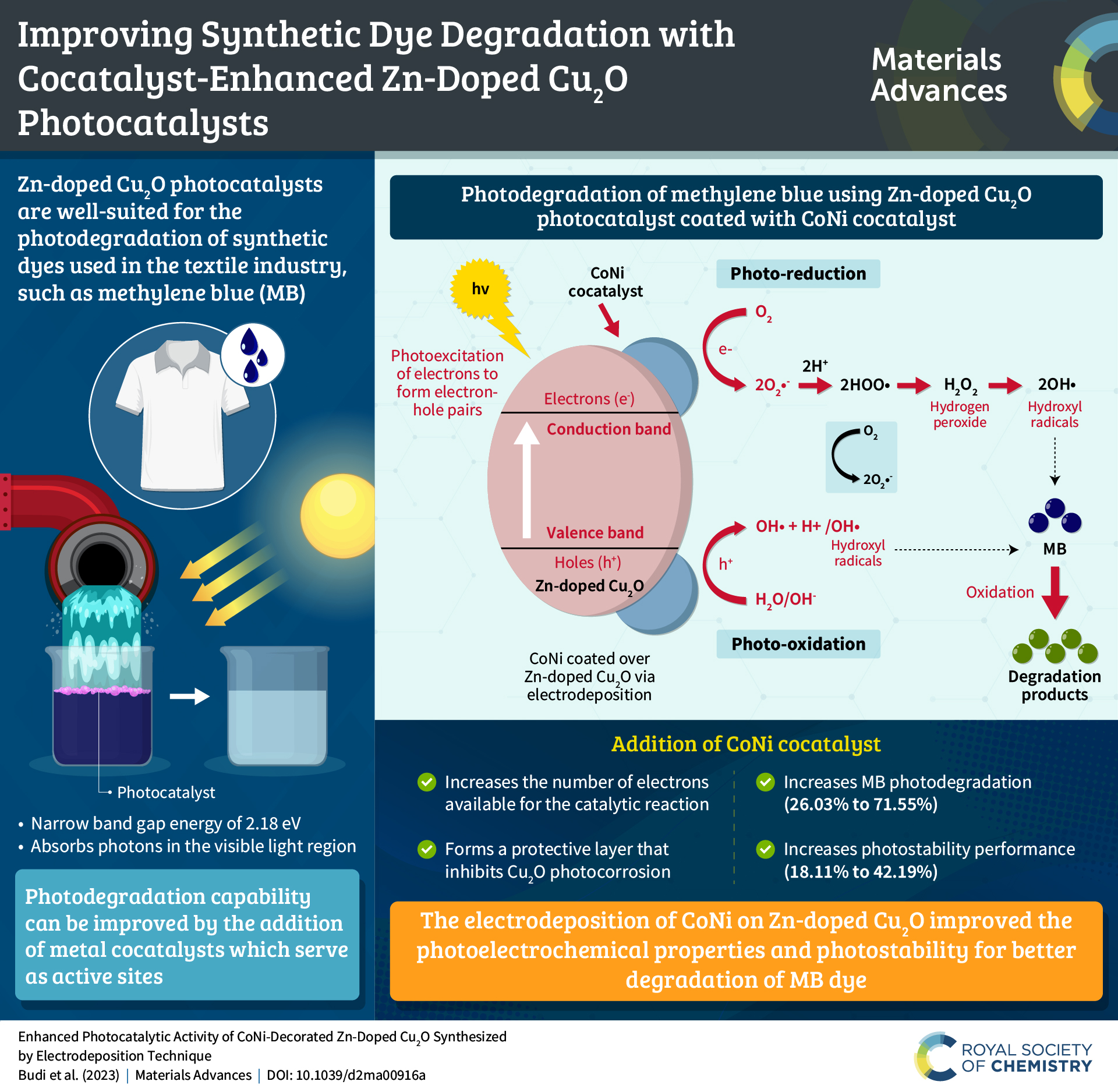
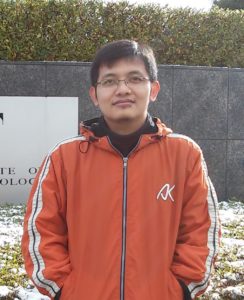
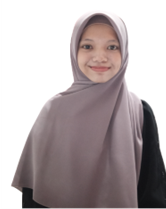

 Dr Marín graduated with a PhD in Chemistry from the University of East Anglia (UEA, UK) in 2013 under the supervision of Prof Russell. From 2013 to 2017, she was a Postdoctoral Researcher at UEA and John Innes Centre; and worked as a Development Scientist at Iceni-Glycoscience. She joined UEA as a Lecturer in Analytical Chemistry in October 2017 and her research focusses on the use of nanotechnology to address biological and biomedical problems. She has extensive experience in applying nanomaterials to biosensing, diagnostics, and drug delivery, and the effective use of modern spectroscopic techniques, both for materials characterisation and device tracking and readout. She was awarded the Roscoe Gold Medal for Chemistry and the Westminster Medal as the overall winner during the 2014 SET for Britain. She is passionate about Analytical Chemistry and its impact in the employability of the undergraduate students, and this is reflected in her contribution to the Analytical modules within the School of Chemistry at UEA. She is a member of the Advisory Board of the RSC journal Analyst, sits on the Advisory Committee of “Advanced Study Course on Optical Chemical Sensors (ASCOS)” European network, is a member of the RSC Analytical Division East Anglia Regional Committee, and is the Chemistry representative in the Executive Group of the Norwich Cancer Research Network.
Dr Marín graduated with a PhD in Chemistry from the University of East Anglia (UEA, UK) in 2013 under the supervision of Prof Russell. From 2013 to 2017, she was a Postdoctoral Researcher at UEA and John Innes Centre; and worked as a Development Scientist at Iceni-Glycoscience. She joined UEA as a Lecturer in Analytical Chemistry in October 2017 and her research focusses on the use of nanotechnology to address biological and biomedical problems. She has extensive experience in applying nanomaterials to biosensing, diagnostics, and drug delivery, and the effective use of modern spectroscopic techniques, both for materials characterisation and device tracking and readout. She was awarded the Roscoe Gold Medal for Chemistry and the Westminster Medal as the overall winner during the 2014 SET for Britain. She is passionate about Analytical Chemistry and its impact in the employability of the undergraduate students, and this is reflected in her contribution to the Analytical modules within the School of Chemistry at UEA. She is a member of the Advisory Board of the RSC journal Analyst, sits on the Advisory Committee of “Advanced Study Course on Optical Chemical Sensors (ASCOS)” European network, is a member of the RSC Analytical Division East Anglia Regional Committee, and is the Chemistry representative in the Executive Group of the Norwich Cancer Research Network. Dr. Biplab Maji completed his undergraduate studies in Chemistry at Ramakrishna Mission Vidyamandira, affiliated with the University of Calcutta, India, in 2007. He went on to earn his M.Sc. degree in Chemistry from IIT Kanpur, India, in 2009. In 2012, he successfully defended his Ph.D. thesis under the mentorship of Prof. Herbert Mayr at Ludwig-Maximilians-Universität München in Germany. Subsequently, in 2013, he embarked on a post-doctoral fellowship in the lab of Professor Hisashi Yamamoto in Japan. In 2015, he conducted research as an Alexander von Humboldt fellow, collaborating with Prof. Frank Glorious in Münster, Germany. In 2016, Dr. Maji joined the Department of Chemical Sciences at the Indian Institute of Science Education and Research Kolkata (IISER Kolkata), India, as an Assistant Professor and he was promoted to the position of Associate Professor in 2021. His group employs diverse catalytic strategies to tackle important chemical problems and develops new catalysts and reaction conditions with potential applications in biomass valorization, drug discovery, late-stage functionalizations, and biologically active compounds. His research team is actively involved in in-depth mechanistic studies, aimed at gaining a comprehensive understanding of how chemical reactions progress.
Dr. Biplab Maji completed his undergraduate studies in Chemistry at Ramakrishna Mission Vidyamandira, affiliated with the University of Calcutta, India, in 2007. He went on to earn his M.Sc. degree in Chemistry from IIT Kanpur, India, in 2009. In 2012, he successfully defended his Ph.D. thesis under the mentorship of Prof. Herbert Mayr at Ludwig-Maximilians-Universität München in Germany. Subsequently, in 2013, he embarked on a post-doctoral fellowship in the lab of Professor Hisashi Yamamoto in Japan. In 2015, he conducted research as an Alexander von Humboldt fellow, collaborating with Prof. Frank Glorious in Münster, Germany. In 2016, Dr. Maji joined the Department of Chemical Sciences at the Indian Institute of Science Education and Research Kolkata (IISER Kolkata), India, as an Assistant Professor and he was promoted to the position of Associate Professor in 2021. His group employs diverse catalytic strategies to tackle important chemical problems and develops new catalysts and reaction conditions with potential applications in biomass valorization, drug discovery, late-stage functionalizations, and biologically active compounds. His research team is actively involved in in-depth mechanistic studies, aimed at gaining a comprehensive understanding of how chemical reactions progress.

